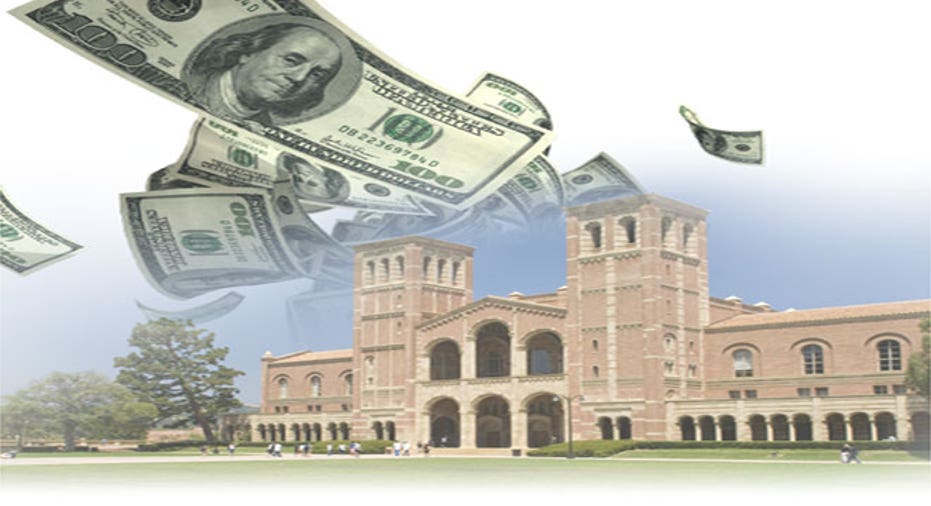Planning Key to Paying Off Student Debt

No matter your student loan balance, having a financial plan is key to paying off this debt. There are different strategies that can help you lower this liability while pursuing your financial goals.
“[Student loans are] just like any other debt — no one wants it hanging over their head,” says Clare Levison, certified pubic accountant and author of Frugal Isn’t Cheap. “This could be a burden and prevent you from looking towards your financial future because you’re still stuck in your financial past with this student loan debt.”
As you develop a plan, experts suggest looking at your monthly income and expenses, as well as any assets and liabilities you may have. “Knowing all of those things helps figure out what the available options are,” says certified financial planner Chantel Bonneau, wealth management advisor with Northwestern Mutual.
Student loans are only one part of your financial plan. While they shouldn’t preclude you from pursuing other financial goals, there are tradeoffs between paying off debt and working on short-term goals. With any plan, it’s important to map out milestones. “If you want to buy a house within five years, you need to look at your debt to figure out what you can pay,” says chartered financial analyst Robert Stammers, director of Investor Education for the CFA Institute. “It’s not a function of dollars, but how long it’s going to take and how it’ll impact your other financial goals.”
As there’s no one-size-fits-all solution, experts recommend tips for what to consider as you develop a plan.
Use Savings to Pay Off Small Balances
“If you have a small balance compared to your current savings and cash flow, you may want to just pay it off to clear off your financial life,” says Anna Behnam, an advisor for Ameriprise Financial.
Experts caution against using all your savings though. “If something pops up, you may have to use a credit card to pay bills, which will get you right back into debt again,” says Levison. She suggests having anywhere from $1,000 in your emergency fund to six months of expenses if you feel your income isn’t stable. “Once you use that money to get yourself out of debt, you will work harder to stay out of that position and can use the extra cash to build up your savings again,” she adds.
Use Extra Cash Flow Wisely
If you have less financial obligations and can afford to pay more, experts suggest doing so. “You may have Stafford loan and private student loans — you want to pay off the highest interest rate loan with the least amount of perks,” says Stammers.
Make sure this is the best use of your money, especially if you have expensive credit card debt or haven’t contributed to your 401k, though.
“Determine the highest invest use of dollar,” says Bonneau. It may make more sense to contribute to your employer’s 401k, especially if there’s a 100% match, than to pay down student loan debt. “The answer isn’t always pay down student loan debt as quick as possible,” she adds.
Consider Longer Repayment Plans
Even though you have cash flow, you may want to use your extra money for other obligations, like a mortgage, children’s tuition or car payments. In this case, a longer repayment plan may help you achieve more than one financial goal at the same time, suggests Behnam.
Delay Plans
Consider putting off large purchases until you have a better handle on your financial situation, suggests Jenny Chou, head of marketing at Darien Rowayton Bank. By delaying a new home or car purchase, living frugally in a less expensive apartment, and not taking extravagant vacations, you can divert more of your funds to your student loan payment and free up future cash flow.
Recent graduates may want to wait three years after starting their first job so they can focus on their career and paying down debt. “Over time, as you pay down that debt, as you adjust to your new work schedule, you can relax some of your more strict spending habits because now you’re more comfortable,” says Chou.
Refinance Your Loans
“It’s all about the bottom line cost to you,” says Behnam. “Consolidation is nice because you only have to pay one bill instead of three or four, but look at what’s cost effective to you.”
Experts suggest determining whether the interest rate on the new consolidation loan is lower than what you’re currently paying on your private or federal loans.
“There are some advantages — you can get a lower interest rate and you can extend the term,” says Stammers. “Consolidation really is for someone who’s got a lot of debt they need to pay off over a longer period of time.”
Your income and job prospects are a key component of this decision. “If you’re just starting out in your career and aren’t comfortable with your income trajectory and job prospects, it may make sense to keep your federal loan,” says Chou.
If you’re confident about your income and career trajectory, other options may make sense. Although private consolidation student loans may have lower interest rates, they don’t have the same benefits as federal loans. “If you do have a hiccup in income, you can’t get those benefits like deferment and forbearance — those things that can’t keep your balance from ballooning,” says Stammers.



















